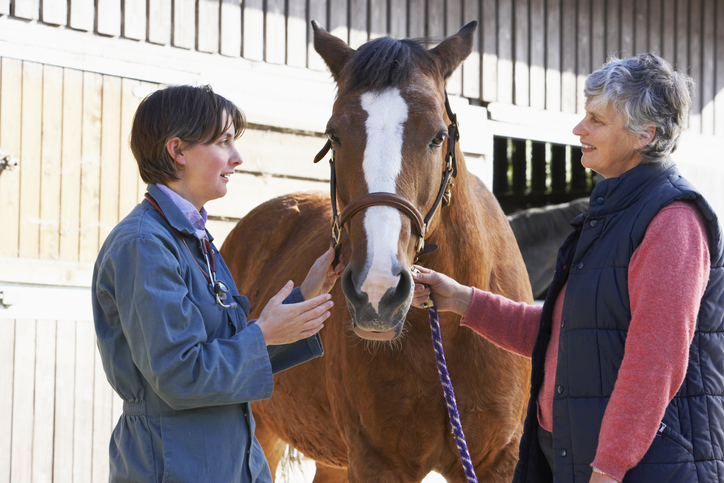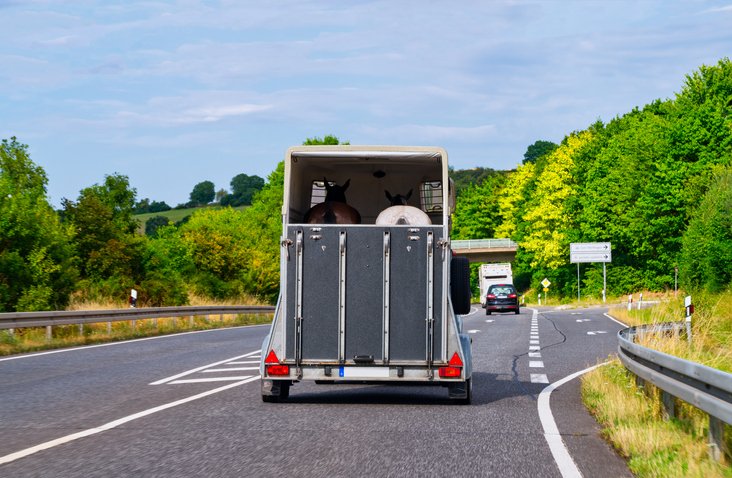As humans, we use our passport as a form of identification. It’s an important document that should be kept safe at all times. The same goes for the passports of our equine friends. There have been a number of changes in the law over the past few years regarding horse passports, leaving some owners confused. That’s why the team at Equesure has put together this quick guide to when your equine friend will need their horse passport.
Just like having the right horse rider insurance, all responsible horse riders will want to keep up to date on the changing passport requirements for horses.

What is a horse passport and why does your horse need one?
Since October 2018, it has been the law for every equine, regardless of their age, origin or use, to be microchipped and issued with a horse passport. These details are recorded on the UK government’s Central Equine Database (CED) managed by Equine Register for Defra.
A horse passport is a small document providing identifying marks of the equine, such as its breed, colour, species, silhouette, and microchip number. The details of the registered keeper are included, as are any vaccinations and drugs used in medical treatment.
As part of passporting, all horses are issued with a 15-digit Unique Equine Lifetime Number (UELN) made up of letters and numbers. All UK UELNs begin with 826 and can be found in the passport.
Passports were introduced to help identify horses and their registered owners, discourage abandonment and improve horse welfare. While in the UK horses are raised as companion animals, the passports were also introduced to stop contamination of any equines entering the meat industry.
Be warned – both owners and keepers of horses may be issued with Fixed Penalty Notices or fined up to £5,000 if they fail to keep the passport with the horse. The only exception is if the horse is being transported for emergency veterinary treatment.
How to get a horse passport
According to the government website you must apply to a Passport Issuing Organisation (PIO) within six months of the horse’s birth or by 30th November of the year of its birth – whichever date is later. There are many PIOs but if you have a pedigree animal then it must be registered with one that manages a studbook for that breed.
Before applying, a vet must implant a microchip in your horse and the details registered on the CED. Applications can take up to six weeks and how much it costs will depend on the PIO and type of animal. For example, if you register with the British Horse Society then a new passport application costs £25.
If a passport is issued later than 12 months after birth, or if the country of origin is unknown, it will be stamped as ‘replacement’. If a passport is lost then the owner must apply for a duplicate passport. Duplicate and replacement passports permanently exclude the equine from entering the food chain.

Passports and microchipping
Since October 2020, all horses must be microchipped and those details registered on the CED. If your horse is not microchipped, or the microchip is not linked to the passport, you’ll need to contact your PIO. If you’re unsure then check if a microchip is officially linked to your horse’s passport by using the National Equine Chipchecker.
When does your horse need one?
Horses must be accompanied by their passport at all times whether at stables or being transported. You don’t need to take it with you on a hack or if you simply move the horse on foot from one field to the next. With that in mind, below are some of the main times when your horse will need their passport with them.
1. Buying and selling a horse
If you sell a horse then it’s a legal requirement for you to also hand over the passport at the time of sale. If you don’t have it then you’ll need to get one before the sale goes ahead. If you’re the buyer then you have 30 days to register your ownership at the CED. So if you get a new horse then it’s not just horse rider insurance you’ll need to get busy arranging!
2. Day-to-day care
If you own or keep a horse without its passport then you are committing a criminal offence if an animal health inspector, trading standards inspector or other enforcement officer asks to see it. It used to be that you had three hours to bring the passport for inspection, but that’s no longer the case. The passport must be available for immediate inspection. This is an important consideration for those who have a horse on loan, run a livery yard or who transport horses on behalf of the owners.
3. Vet appointments
Before treating a horse, a vet may ask to see the passport. The vet has to be aware of the human consumption status of the horse before deciding which medicines to prescribe.
4. At competition or events
Events often require a horse's UELN to be entered on entry forms and can also conduct spot checks at events or on arrival. If you can’t produce the passport when asked, you might be stopped from competing.
5. Importing a horse
At the time of writing, horses imported from the EU should have a valid passport but you’ll need to update this with a UK PIO within 30 days. If the horse comes from outside the EU and doesn’t have a valid passport, you’ll have 30 days to get one. Be aware that Brexit may affect these rules.
6. When the horse dies
An unhappy event indeed but an unfortunate fact of life. You must return the passport to the PIO within 30 days of death, stating the date and cause.
Horse rider insurance through Equesure
Following the right rules and regulations is an important part of horse ownership. That’s why horse rider insurance is so crucial. It protects both you and your equine in the event of an accident or illness.
Request a horse rider insurance quote today.
Policy benefits and features offered may very between insurance schemes or cover selected and are subject to underwriting criteria. Information contained within this article is accurate at the time of publishing but may be subject to change.





